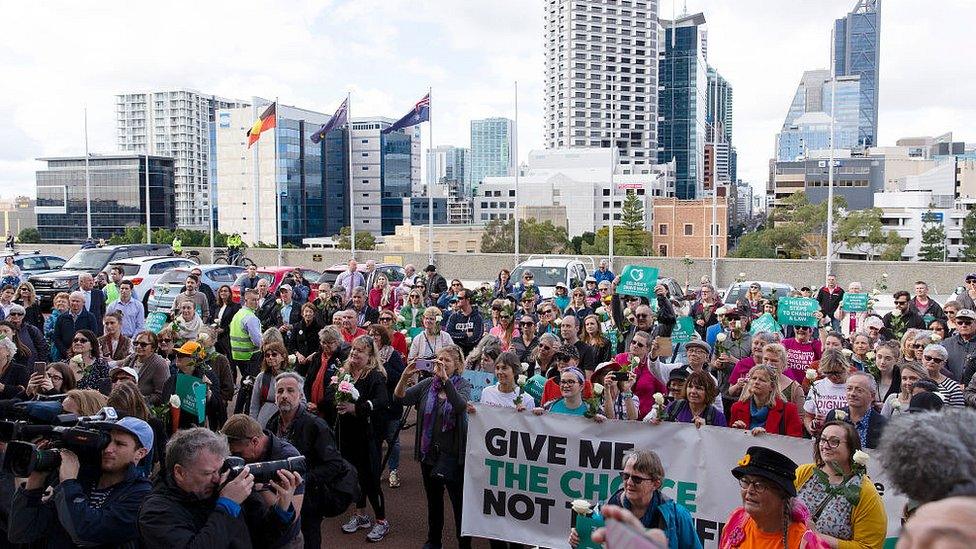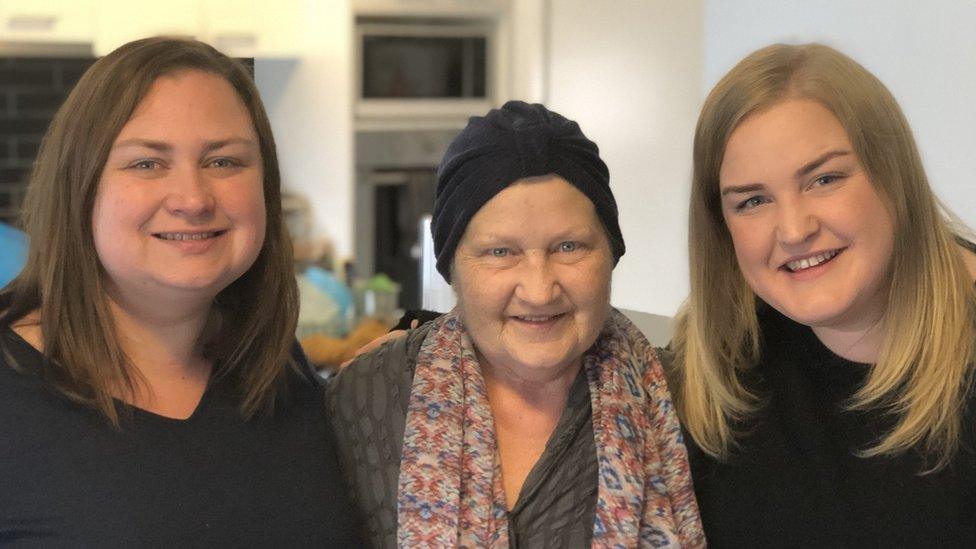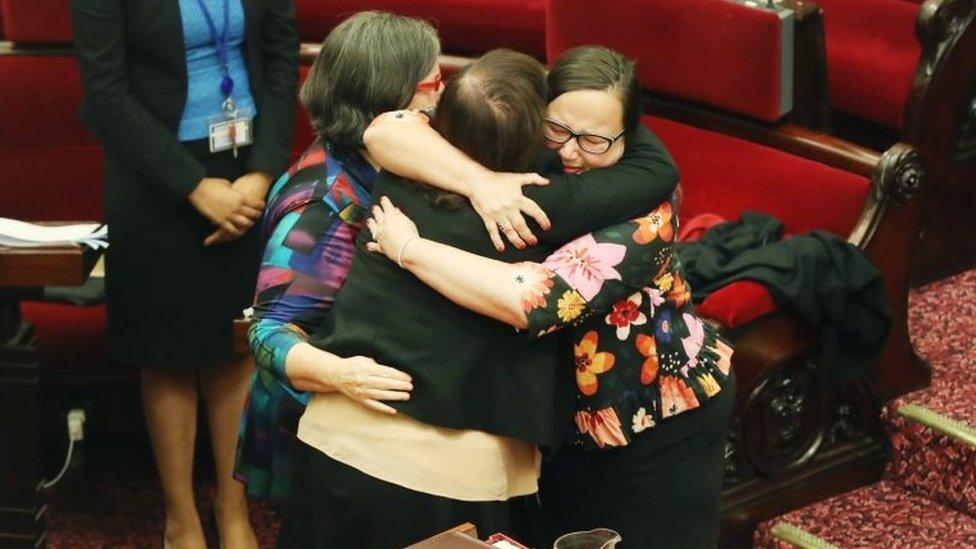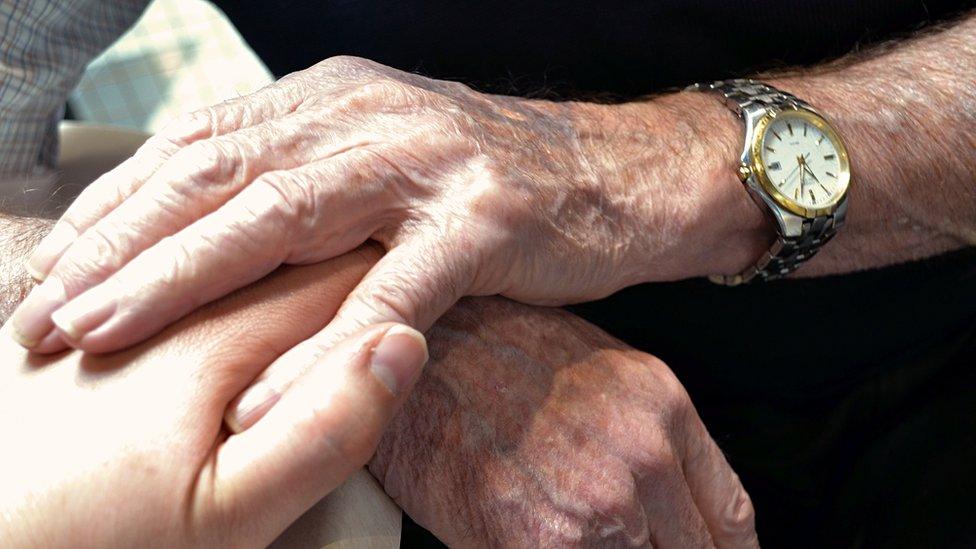Assisted dying: Western Australia passes legislation
- Published

Supporters of the bill staged a rally in Perth in August
Western Australia has legalised voluntary assisted dying, becoming the second state in the country to do so.
There were cheers and emotional scenes in the public gallery as MPs passed the historic legislation in the state's lower house of parliament in Perth.
Some MPs also hugged each other on the floor of the legislative assembly.
Victoria legalised assisted dying in 2017. In August, a woman with terminal cancer became the first person to end their life under that law.
MPs in Perth took five hours to pass 55 amendments to the legislation which had been approved by the upper house - the legislative council - in a marathon session last week.
The controversial law has produced weeks of often impassioned debate.
Health Minister Roger Cook fought back tears as he welcomed the final passing of the bill, but said it was "not a time for jubilation".
"We are at the end of a very long process, a momentous process for the West Australian parliament and West Australian public," he told MPs.
"Everyone knows what this legislation is about. It's about reflection. And to reflect that we've chosen compassion and the right to choose."
State Premier Mark McGowan tweeted that it was "a remarkable moment for our state" and would go down in history as one of Western Australia's most important reforms.
Allow X content?
This article contains content provided by X. We ask for your permission before anything is loaded, as they may be using cookies and other technologies. You may want to read X’s cookie policy, external and privacy policy, external before accepting. To view this content choose ‘accept and continue’.
The new law - which some opponents had described as dangerous and reckless - includes more than 100 safeguards.
A person seeking to be eligible would have to be terminally ill and in severe pain, Australian broadcaster ABC reported, external. Their condition would need to be likely to result in death within six months, or a year for a neurodegenerative condition.
Two verbal requests and one written request are needed and those requests would need to be signed off by two doctors independent of one another.
The scheme is expected to come into effect in about 18 months to give health providers time to prepare.
In August, Kerry Robertson, 61, died in a nursing home in Bendigo, Victoria, after using the state's new law to end her life.

Kerry Robertson, with her daughters Jacqui (left) and Nicole, died in August
She was diagnosed with breast cancer in 2010 and it later spread to her bones, lungs, brain and liver.
Mrs Robertson was given permission to use the legislation after a 26-day approval process.
Her family said she was able to have "the empowered death that she wanted".
The Australian state of Queensland is also considering voluntary assisted dying legislation.
Why a UK man decided to end his life in Switzerland
- Published29 November 2017

- Published20 October 2017
